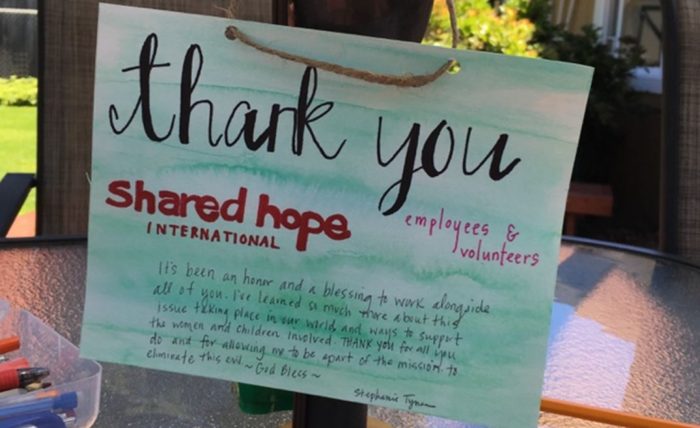By Iona Rudisill, Baltimore Child Abuse Center
Trafficking of youth has been occurring for decades and centuries. Regardless of the Emancipation Proclamation being enacted in 1863, the reality is slavery never stopped. That is exactly what juvenile sex trafficking is: the slavery and bondage of innocent youth for the pleasure and commercial exploitation of others. And this experience has profound impacts on the individual enslaved. Therefore, when a 14 year old is brought to an accredited Child Advocacy Center because they have been sexually abused by an aunt repeatedly fondling them, an uncle sodomizing them, and a cousin selling them to others for fiscal profit and gain, the trauma that this adolescent has experienced is complex. It is during the adolescent years of development when children begin to come into their own identity, this developmental milestone is directly impacted by the fact that the child has had to deal with mistrust, broken promises, psychological and physical threats as well as endless mind games. Since these adolescents have encountered a multiplicity of deplorable life experiences, the manner in which they manage this trauma imposed upon them can have an effect on how they interact with professionals who are trying to help them, particularly in the way the traumatized youth responds in an interview.
This is why I am offering a training session to provide professionals (i.e. social workers, forensic interviewers, mental health providers, law enforcement and attorneys) with a better understanding of how the dynamics of trauma can affect the results in the different types of interviews a juvenile sex trafficked youth will encounter. We will explore brain development of youth, and discuss steps that professionals can take in helping the youth unpack their painful memories with the understanding of how brain development has been impacted by their experiences. The more prepared an interviewer is to recognize that the trauma is speaking rather than the child, and utilize the tools required to bring the child out of that trauma-control, the more fruitful and helpful the interview will be for the variety of needs in a juvenile sex trafficking case.
About the Author: Iona Rudisill is an LGSW, with over 22 years of working in the field of child abuse and 16 years of experience in forensic interviewing, with training in a myriad of national and international protocols. She is currently the co-chair of the Maryland State Human Trafficking Task Force Victim Services subcommittee and Human Trafficking Program Manager at Baltimore Child Abuse Center.
This blog post was originally part of our 2016 JuST Conference Speaker Blog Series.
 No life is worth another man’s profit.
No life is worth another man’s profit.





